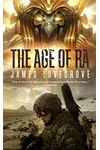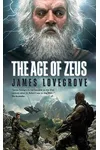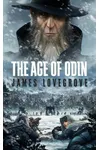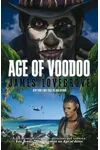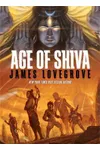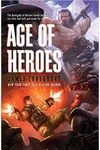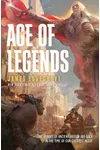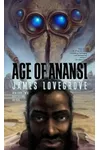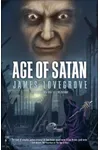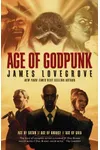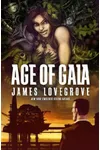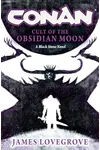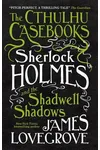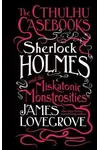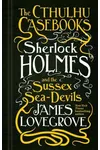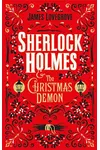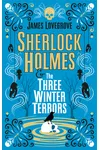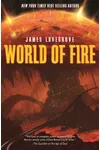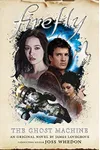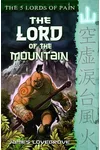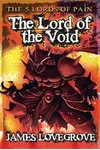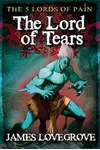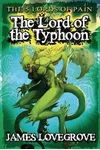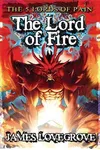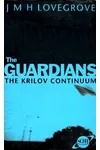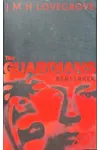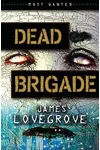Picture a British storyteller who weaves ancient gods into high-tech battlefields—meet James Lovegrove! With a knack for blending mythology and military sci-fi, Lovegrove has carved out a unique niche in speculative fiction. His Pantheon series, especially the New York Times bestseller The Age of Odin, has thrilled readers with its epic clashes and witty prose. From Norse gods to Sherlock Holmes pastiches, Lovegrove’s versatility keeps fans hooked.
Born in 1965, this Oxford-educated author has been spinning tales since his teens, earning nominations for prestigious awards like the Arthur C. Clarke. Whether you’re a mythology buff or a sci-fi fanatic, Lovegrove’s worlds are a wild ride you won’t forget!
The Making of James Lovegrove
James Lovegrove grew up in London, attending Radley College before studying English literature at St Catherine’s College, Oxford. His early exposure to public school life, featured in a 1979 BBC documentary, shaped his sharp observational skills. Writing became his passion at university, and by 1990, he published his debut novel, The Hope, with Macmillan—completed in just six weeks! This dystopian tale set on an ocean liner marked the start of a prolific career, fueled by his love for speculative fiction and genre-blending.
Influenced by authors like Arthur C. Clarke and H.P. Lovecraft, Lovegrove’s early works leaned into bold ideas and vivid world-building. His determination to sell a novel within two years post-graduation paid off, setting the stage for a diverse bibliography spanning sci-fi, fantasy, and young adult fiction.
James Lovegrove’s Unforgettable Stories
Lovegrove’s Pantheon series is his crown jewel, a collection of standalone military sci-fi novels that mash up ancient mythologies with modern warfare. The Age of Odin (2010), a fan favorite, follows ex-soldier Gideon Coxall as he battles alongside Norse gods like Odin and Thor to prevent Ragnarök. Readers praise its gritty action and clever integration of mythology into a contemporary setting. Similarly, The Age of Zeus (2010) pits high-tech rebels against Greek gods, blending explosive combat with philosophical questions about power.
Beyond the Pantheon, Lovegrove’s versatility shines in Days (1997), a darkly satirical sci-fi novel nominated for the Arthur C. Clarke Award, exploring a dystopian megastore. His Sherlock Holmes pastiches, like the Cthulhu Casebooks, merge Conan Doyle’s detective with Lovecraftian horror, while his Firefly tie-in novels, including the award-winning The Ghost Machine, delight fans with their faithful yet fresh take on the beloved universe. Lovegrove’s style—fast-paced, witty, and richly detailed—makes every story a page-turner.
He’s also written young adult fantasy under the pseudonym Jay Amory, with The Clouded World series translated into nine languages. His short stories, like the Seiun Award-winning “Carry The Moon in My Pocket,” showcase his ability to pack big ideas into compact narratives.
Why James Lovegrove Matters
James Lovegrove’s impact lies in his fearless genre-blending, creating what critics call the “godpunk” subgenre—stories of rebellious humans challenging divine powers. His Pantheon series has sold over 250,000 copies, resonating with readers who crave action-packed tales grounded in cultural myths. By humanizing gods and demigods, Lovegrove makes ancient stories feel urgent and relatable, sparking interest in mythology among sci-fi fans.
As a Financial Times fiction reviewer and contributor to outlets like Interzone, Lovegrove shapes literary discourse, championing speculative fiction’s potential. His nominations for awards like the John W. Campbell Memorial and his global translations into 18 languages underscore his influence, proving that even niche genres can find a wide audience.
- Born: December 24, 1965, London, UK
- Key Works: The Age of Odin, The Age of Zeus, Days, The Ghost Machine
- Awards: Seiun Award (2011), Dragon Award (2020)
- Fun Fact: Lovegrove once illustrated postcards for Echo Beach!
Snag The Age of Odin and dive into James Lovegrove’s thrilling godpunk universe—your bookshelf will thank you!
